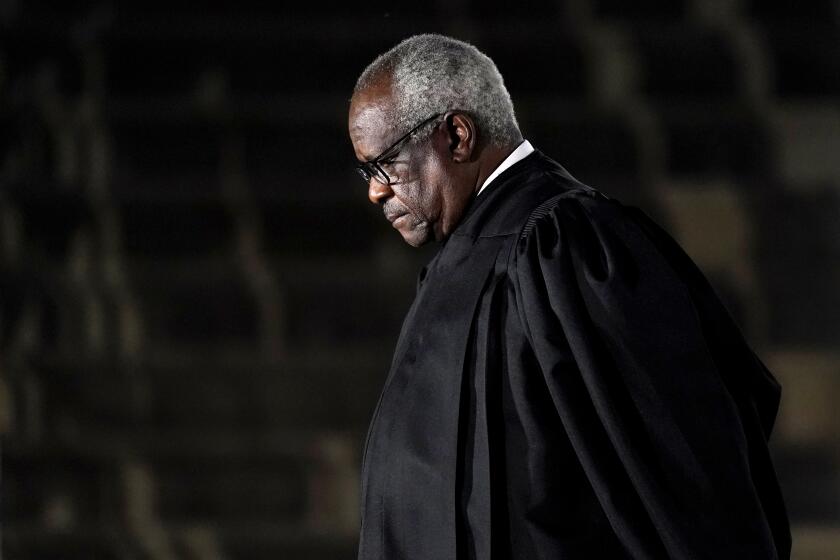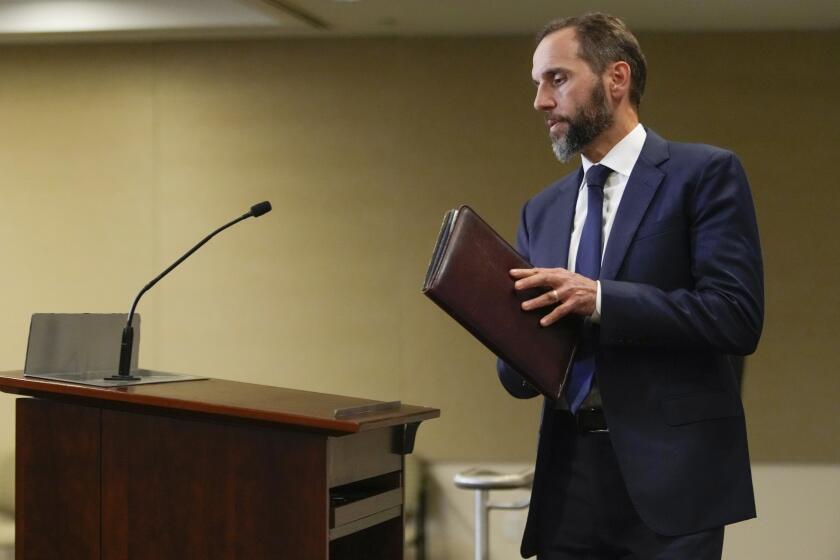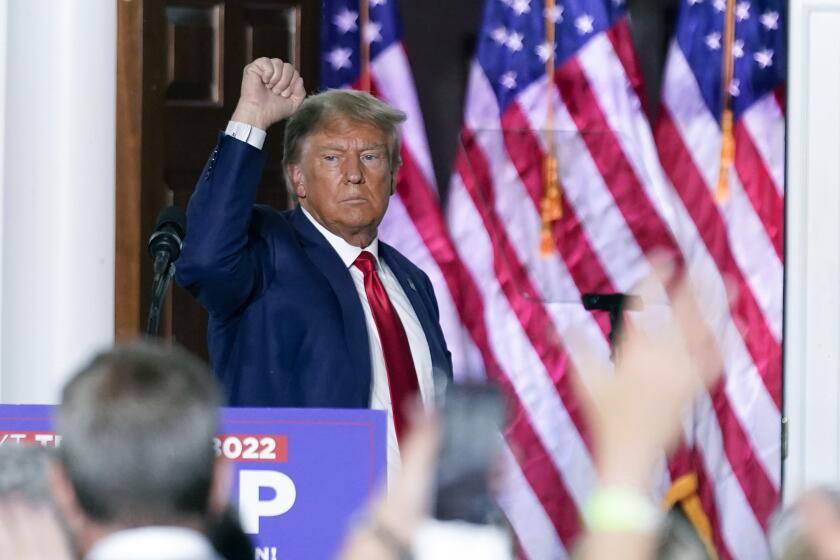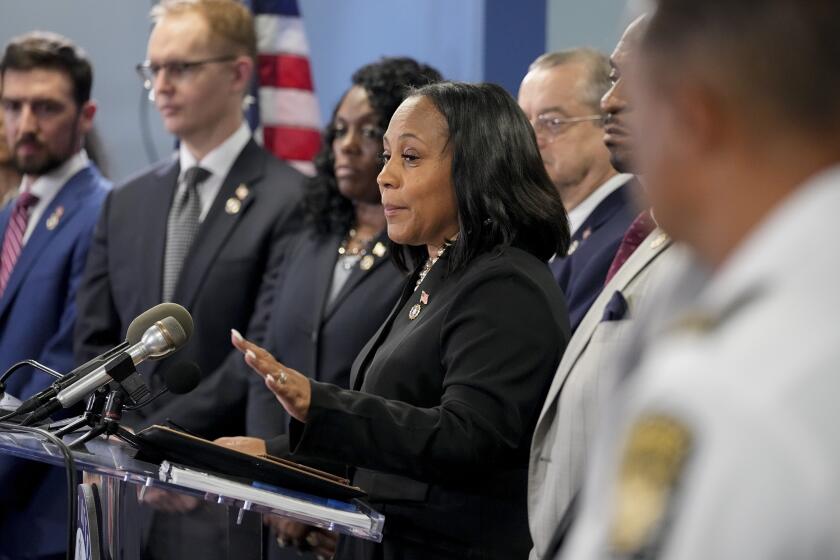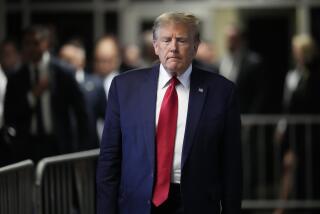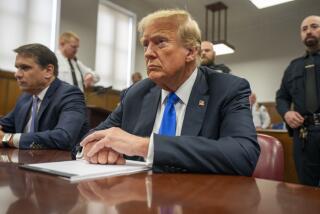No immunity for Trump. Former presidents don’t have a ‘get-out-of-jail-free’ card
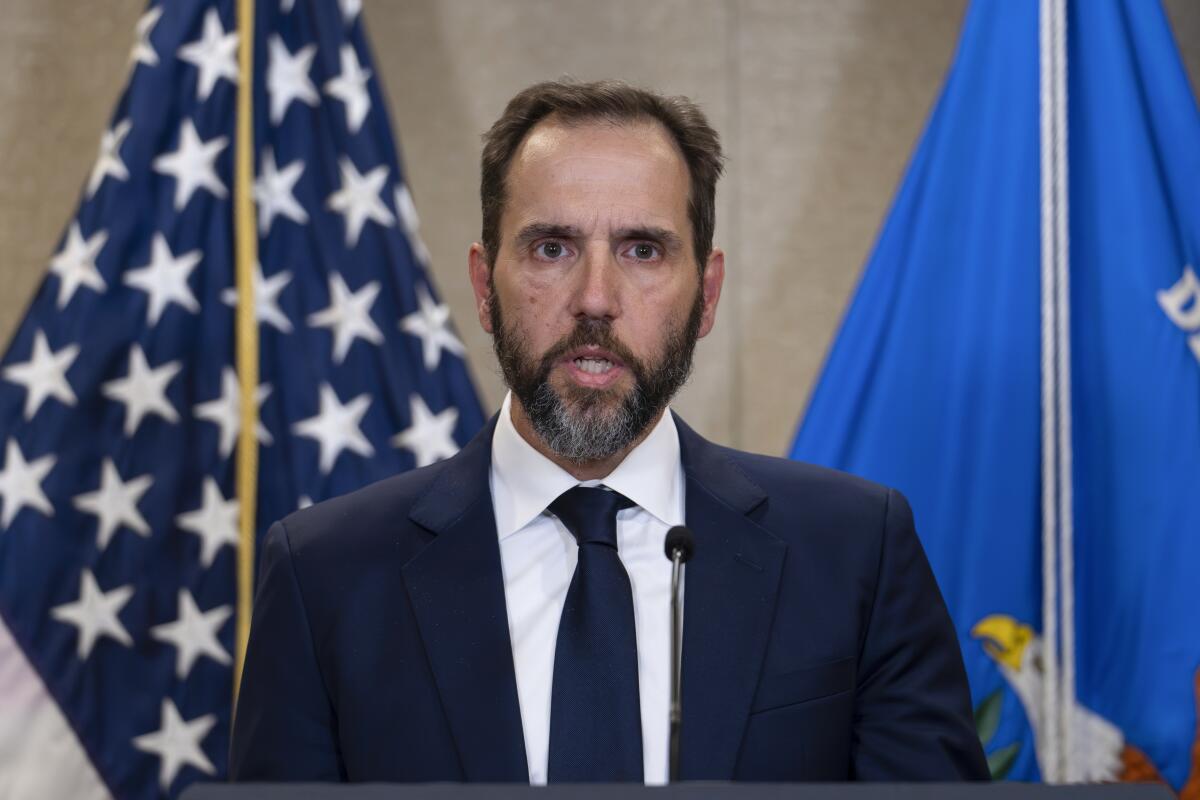
- Share via
After the Senate acquitted Donald Trump at his second impeachment trial, Senate Minority Leader Mitch McConnell suggested that Trump might still be held accountable for his efforts to overturn the 2020 election that culminated in the Jan. 6, 2021, attack on the U.S. Capitol. “We have a criminal justice system in this country. We have civil litigation,” said McConnell (R-Ky.). “And former presidents are not immune from being held accountable by either one.”
Indeed, Trump faces criminal charges related to his attempt to overturn the election in both state and federal court, though he has attempted to derail those prosecutions with elaborate but unpersuasive objections, including the assertion that he has immunity from prosecution. It’s vital that the U.S. Supreme Court, which likely would have the last word on Trump’s legal challenges in any case, move quickly to rule on those arguments so Trump can face a jury as soon as possible, and certainly before the November 2024 presidential election.
You don’t have to be an attorney to see how Ginni Thomas’ conduct poses an apparent conflict of interest for her husband.
Special counsel Jack Smith has asked the justices to fast-track a ruling on Trump’s appeal of a federal district judge’s ejection of the former president’s immunity claim, bypassing review by a federal appeals court. Smith also asked the court to consider whether Trump’s acquittal at an impeachment trial protects him from prosecution. The justices should accept Smith’s request, just as their predecessors in 1974 expedited a ruling on whether President Nixon could be forced to turn over Watergate-related tape recordings.
The court should move equally fast in ruling on a Jan. 6 defendant’s challenge to the applicability — to him and other defendants, including Trump — of a federal law enacted after the Enron scandal making it a crime to “corruptly ... obstruct ... an official proceeding.” Last week the justices agreed to hear the appeal of the defendant, Joseph Fischer, a former Pennsylvania police officer. Once the court hears oral arguments, it should resolve this case expeditiously as well.
Litman: How Jack Smith’s risky but clever maneuver in the Jan. 6 prosecution puts Trump in a bind
The special counsel’s petition for expedited Supreme Court review of the ex-president’s immunity claim could head off delays and get the case tried before the election.
U.S. District Judge Tanya S. Chutkan has scheduled Trump’s trial on election-related charges for March 4. In asking the Supreme Court to expedite consideration of Trump’s claim to immunity, Smith wrote: “Vindicating that public interest in this case requires immediate resolution of the immunity question to permit the trial to occur on an appropriate timetable.”
Smith has been faulted for not explaining more fully why time is of the essence. But it seems obvious: Delaying Trump’s trial would deny voters the opportunity to consider the outcome of the trial — be it conviction or acquittal — in choosing a president in 2024 if he were the Republican nominee.
There is also the possibility that, if the trial were delayed until after the election and Trump won, he would move to shut down the prosecution and pardon other defendants who have been convicted of charges arising out of the riot at the Capitol. It is not impermissibly “political” for prosecutors — or judges — to take the broader public interest into account when dealing with questions of timing or other matters, so long as a defendant’s rights are respected.
He’s made it clear time and again that if elected for a second term, he will push the nation into authoritarianism.
On the merits, Trump’s claim to immunity is unconvincing in the extreme. As Chutkan noted in her ruling: “Whatever immunities a sitting president may enjoy, the United States has only one chief executive at a time, and that position does not confer a lifelong ‘get-out-of-jail-free’ pass.”
Chutkan similarly demolished two other arguments: that the indictment “criminalized” Trump’s speech in violation of the 1st Amendment and that he couldn’t be prosecuted because he was acquitted at his second impeachment trial. On the contrary, Chutkan held, the Constitution’s language on impeachment “does not provide that acquittal by the Senate during impeachment proceedings shields a President from criminal prosecution after he leaves office.”
A conviction in a state court could not be erased by a presidential pardon if Donald Trump were to return to office.
The separate argument that Jan. 6 defendants — and Trump — cannot be prosecuted for corruptly obstructing an official proceeding is also unpersuasive. The U.S. Court of Appeals for the District Columbia Circuit concluded that federal law authorizes prosecutions for obstructing the counting of electoral votes. The law about obstructing an official proceeding, Circuit Judge Florence Y. Pan wrote, is not confined to situations involving tampering with documents, records or other objects, as a district court judge held.
Finally, when the Supreme Court takes up issues related to the 2020 election, one justice should not take part: Clarence Thomas, whose wife, Virginia, was involved in efforts to overturn that election. In a matter so consequential for the country, Thomas should recuse himself to safeguard public confidence in the court.
The maxim that “justice delayed is justice denied” applies not only to criminal defendants such as Trump, but also to the public. The Supreme Court should consider the public interest and move quickly to consider — and dispose of — Trump’s objections so that he can face a jury.
More to Read
A cure for the common opinion
Get thought-provoking perspectives with our weekly newsletter.
You may occasionally receive promotional content from the Los Angeles Times.
